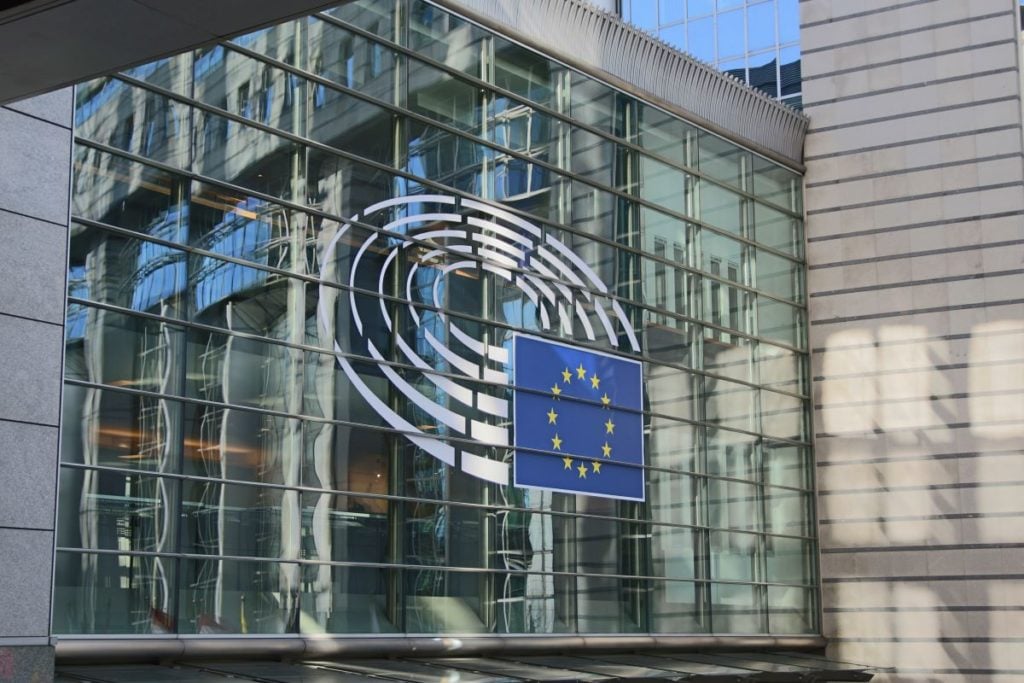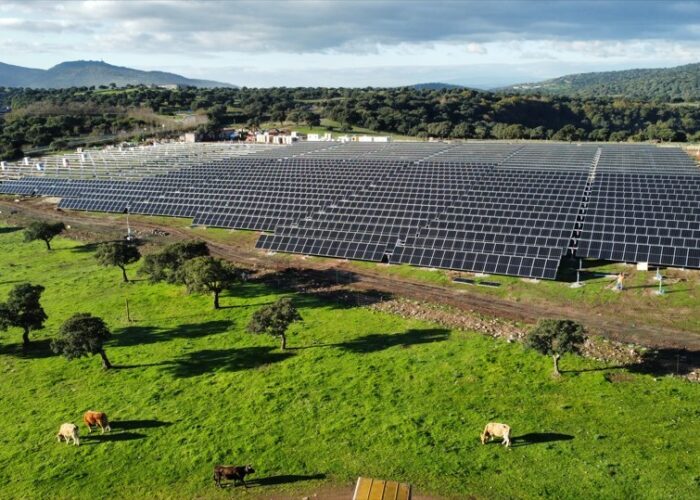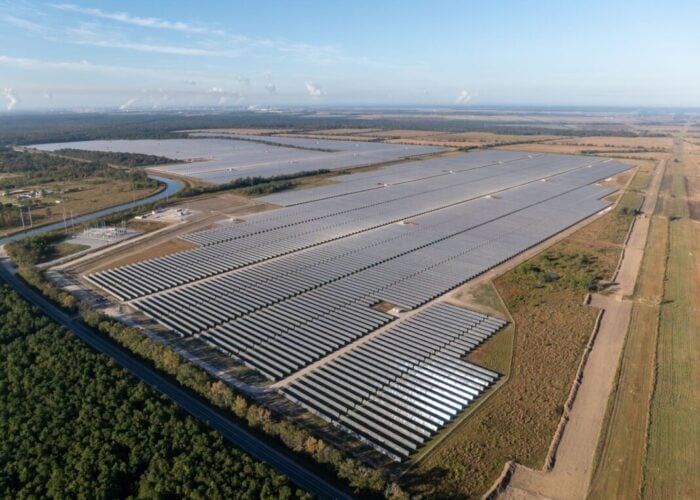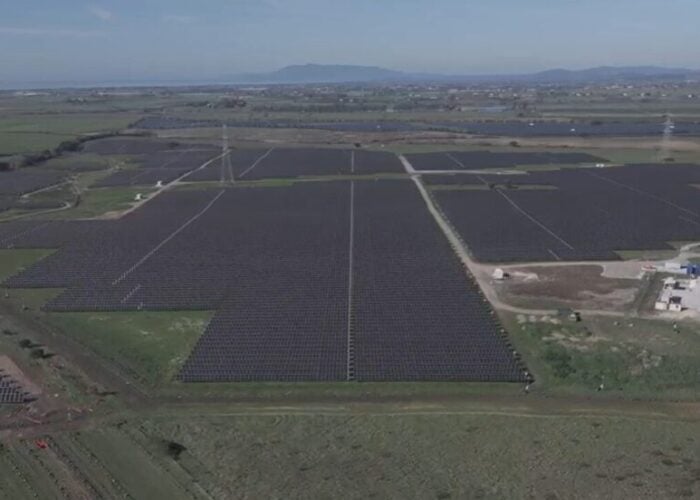
The European Commission (EC) has approved this week Italy’s and Hungary’s aid schemes to support renewable energy projects.
Under the Recovery and Resilience Facility (RRF), which will partly fund the scheme, Italy will allocate €5.7 billion (US$6.2 billion) to support renewable energy communities and self-consumers.
Unlock unlimited access for 12 whole months of distinctive global analysis
Photovoltaics International is now included.
- Regular insight and analysis of the industry’s biggest developments
- In-depth interviews with the industry’s leading figures
- Unlimited digital access to the PV Tech Power journal catalogue
- Unlimited digital access to the Photovoltaics International journal catalogue
- Access to more than 1,000 technical papers
- Discounts on Solar Media’s portfolio of events, in-person and virtual
Italy’s scheme is composed of two aid measures, which will support the construction or expansion of renewable energy projects of small-scale, with a capacity of up to 1MW. The first measure will be a premium tariff on electricity consumed by self-consumers and renewable energy communities that would be paid over a 20-year period with a budget of €3.5 billion and financed through a levy on the electricity bill of all consumers.
With a budget of €2.2 billion, the second measure – financed through the RRF – will take the form of an investment grant for up to 40% of the costs and with eligible projects required to be completed before 30 June 2026 in order to benefit from the RRF funding, and will need to be located in municipalities of less than 5,000 inhabitants.
“This €5.7 billion scheme enables Italy to support the production and self-consumption of renewable electricity by energy communities. It will strengthen citizens’ engagement and first-hand participation in the green energy transition by supporting local communities to multiply renewable power generation installations,” said Commissioner Didier Reynders, in charge of competition policy.
“In line with the European Green Deal, the Italian aid measure will contribute to achieving the EU’s and Italy’s decarbonisation and electricity production targets,” said Commissioner Didier Reynders, in charge of competition policy.
Mainly aimed at the residential market, this new scheme from Italy could give a boost to this market’s growth, after the end of the 110% Superbonus and maintain the country’s momentum with solar PV as trade association Italia Solare expects at least 4GW of PV installations in 2023, numbers not seen since 2012.
A more in-depth look at Italy’s strong 2023 can be read in a PV Tech Premium story that looked at data from 2023 and last year, such as the chart below, as well as a conversation with Paolo Viscontini, president of Italia Solare.
The part of the scheme funded by the RRF will run until the end of 2025, while the remaining part until the end of 2027.
Hungary’s €4.6 billion REPowerEU chapter
Italy was not the only European country which had a renewable scheme reviewed by the EC on a renewables scheme, with Hungary’s €4.6 billion REPowerEU chapter being positively assessed.
Hungary’s REPowerEU chapter includes 13 reforms and 16 investments and their implementation will help deliver on the European Union’s strategy to reduce its dependence on fossil fuels before 2030. This includes measures to strengthen and modernise the electricity sector, accelerate the deployment of renewables and invest in green technologies among others.
Furthermore, Hungary proposed changes to 19 measures from its original recovery and resilience plan. Overall, the country’s modified plan has a strong focus on the green transition with 67.1% of the funds – up from 48.1% – allocated to measures supporting climate measures.
Among the measures Hungary aims to implement are reforms related to the introduction of dynamic pricing in the retail electricity market, strengthening the role of energy communities and aggregators, and incentivising the uptake of electricity storage and grid development to allow for more renewable resources to be added to the grid.
Hungary plans to increase grid connection authorisations for renewables as it raised its target of installed renewable energy resources to 12GW by 2026.
This is not the first renewable scheme approved by the EC this year for Hungary, as this summer it approved a €2.4 billion budget to invest in renewable manufacturing.
EC launches first European Hydrogen Bank auction
Finally this week, the EC launched the first auction under the European Hydrogen Bank to boost the production of renewable hydrogen in Europe. It will have a budget of €800 million of emissions trading revenues, channelled through the Innovation Fund, which itself saw the launch of its latest iteration earlier this week with a budget of €4 billion.
Producers of green hydrogen – coined as renewable hydrogen by the EC – can bid for support in the form of a fixed premium per kilogram of hydrogen produced as it intends to bridge the gap between production cost and price consumers are willing to pay, especially as non-renewable hydrogen is cheaper to produce.
The launch of the Hydrogen Bank is set to complement other policies that aim to create a market for renewable hydrogen in Europe, increase investments in the production capacity and bring production to scale.
This auction aims to contribute towards the European Union (EU)’s REPowerEU plan to produce 10 million tonnes of hydrogen domestically by 2030.
It has been a busy week in the EU as the European Parliament voted in favour of the Net Zero Industry Act (NZIA) on Tuesday (21 November), which will seek to onshore manufacturing for renewable energy technologies, including solar PV and energy storage to the EU.







